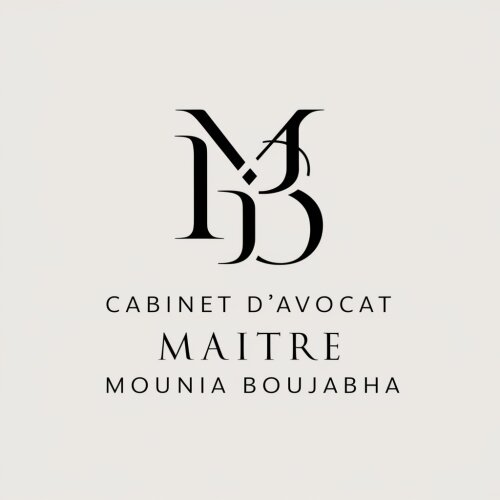Best Faith-Based Law Lawyers in Rabat
Share your needs with us, get contacted by law firms.
Free. Takes 2 min.
List of the best lawyers in Rabat, Morocco
About Faith-Based Law in Rabat, Morocco
Faith-Based Law in Rabat, Morocco, predominantly centers around the Islamic legal system, which is an integral part of Morocco’s legal framework. The country operates under a blend of civil and religious laws, with Islamic law (Sharia) playing a significant role, particularly in family matters, inheritance, and certain civil disputes. The Maliki school of Sunni Islamic jurisprudence is mainly followed. The laws are often interpreted by religious scholars and applied through specialized family courts. Understanding and navigating these laws can be complex, making it essential for individuals and entities to seek knowledgeable legal guidance.
Why You May Need a Lawyer
Several common situations may necessitate legal assistance in the realm of Faith-Based Law in Rabat, Morocco. These include, but are not limited to, marital issues such as divorce, child custody, or marriage contracts; inheritance disputes; and the drafting or interpretation of any legal documents that must adhere to Islamic principles. Additionally, if you are entering into business arrangements or contracts where faith-based principles are a concern, having a lawyer who is familiar with both civil and religious legal systems can be crucial.
Local Laws Overview
In Rabat, Morocco, Faith-Based Law is intertwined with civil law, especially regarding personal status, family law, and inheritance. Key aspects include:
- Marriage and Divorce: Governed largely by the Moudawana, which is the country's family code, rooted in Islamic principles.
- Inheritance: Strongly influenced by Sharia law, with specific rules regarding the distribution of assets.
- Business Contracts: Although commercial law is generally based on French civil principles, Islamic finance principles can also be applicable.
- Family Disputes: Addressed by family courts that apply both civil and religious law.
Frequently Asked Questions
What is the role of Sharia in Morocco’s legal system?
Sharia law is primarily applied in personal status issues, covering family law, marriage, divorce, and inheritance, among other areas.
Can foreigners be subject to Faith-Based Law in Morocco?
Yes, foreign Muslims in Morocco may fall under faith-based regulations, particularly in cases of family law and inheritance.
How does civil law interact with Faith-Based Law in Rabat?
Civil law governs commercial and criminal laws, while Faith-Based Law largely governs personal status matters, often requiring a harmonious application of both systems.
Are there alternative dispute resolution mechanisms following Faith-Based Law?
Yes, mediation and arbitration are encouraged in family disputes before escalating to court proceedings, often guided by religious principles.
What is the process to obtain a divorce under Faith-Based Law?
Divorce is typically overseen by family courts, requiring adherence to certain Islamic principles and evidence submission, which a lawyer can assist with.
How are inheritance matters handled in Rabat?
Inheritance disputes are resolved using strict Sharia rules regarding asset distribution among heirs, managed by family courts.
What legal documents need to adhere to Faith-Based Law?
Marriage contracts, wills, and any agreement involving personal status or financial dealings with an Islamic financial institution need to adhere to such laws.
How does one ensure that a will complies with Faith-Based Law?
Consulting with a legal professional skilled in both civil and Islamic inheritance laws is essential to ensure compliance.
Do business contracts need to consider Faith-Based Law?
Generally, business contracts follow civil law, but those involving Islamic finance may need to comply with Islamic legal principles.
How is custody determined under Faith-Based Law?
Custody decisions are made with the child's best interest as the priority, often with adherence to religious principles concerning guardianship.
Additional Resources
Several resources and organizations can be useful for anyone seeking more information or legal aid in Faith-Based Law in Rabat:
- Ministry of Justice and Liberties: Offers insight into Moroccan legal statutes and access to legal advisors.
- Family Courts in Rabat: Specializing in personal status issues, providing expert handling of faith-based legal cases.
- Islamic Cultural Centers: Often house legal advisors familiar with both religious and secular aspects.
- Local Bar Associations: Can refer specialized attorneys skilled in Faith-Based Law.
Next Steps
If you require legal assistance in Faith-Based Law, consider the following steps:
- Research and identify the specific area of law where you need help.
- Consult with a lawyer or legal advisor specializing in Faith-Based Law and the relevant local laws.
- Gather and prepare any necessary documentation that relates to your case.
- Use available resources, such as legal aid services or consultations with the Ministry of Justice, to understand your rights and obligations.
- Proceed with your legal matters, supported by a qualified advisor who understands both the civil and faith-based legal requirements in Rabat.
Lawzana helps you find the best lawyers and law firms in Rabat through a curated and pre-screened list of qualified legal professionals. Our platform offers rankings and detailed profiles of attorneys and law firms, allowing you to compare based on practice areas, including Faith-Based Law, experience, and client feedback.
Each profile includes a description of the firm's areas of practice, client reviews, team members and partners, year of establishment, spoken languages, office locations, contact information, social media presence, and any published articles or resources. Most firms on our platform speak English and are experienced in both local and international legal matters.
Get a quote from top-rated law firms in Rabat, Morocco — quickly, securely, and without unnecessary hassle.
Disclaimer:
The information provided on this page is for general informational purposes only and does not constitute legal advice. While we strive to ensure the accuracy and relevance of the content, legal information may change over time, and interpretations of the law can vary. You should always consult with a qualified legal professional for advice specific to your situation.
We disclaim all liability for actions taken or not taken based on the content of this page. If you believe any information is incorrect or outdated, please contact us, and we will review and update it where appropriate.









